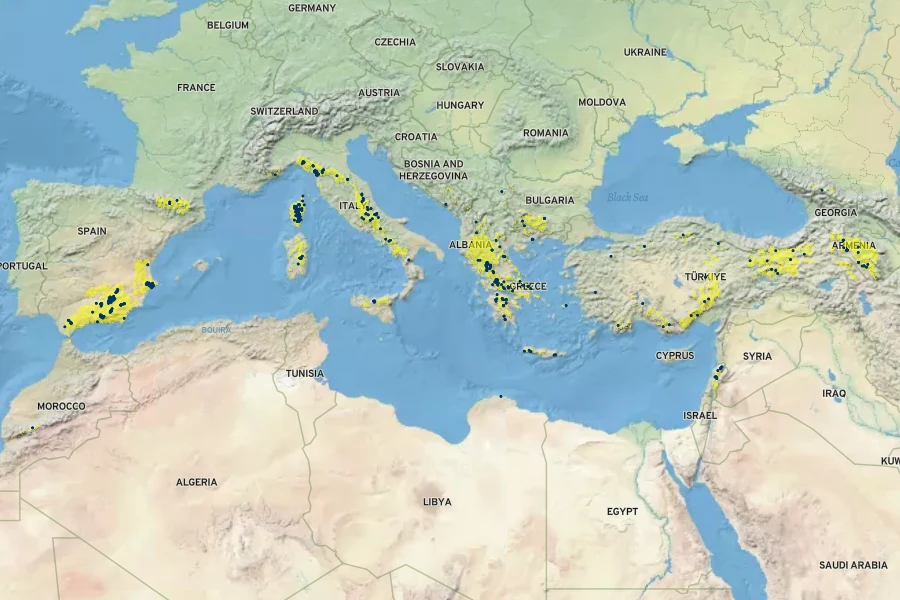Olive-Leaved Daphne
/
(Daphne oleoides)
Olive-Leaved Daphne (Daphne oleoides)
/

Miltos Gikas
CC BY 2.0
Image By:
Miltos Gikas
Recorded By:
Copyright:
CC BY 2.0
Copyright Notice:
Photo by: Miltos Gikas | License Type: CC BY 2.0 | License URL: https://creativecommons.org/licenses/by-sa/2.0/ | Uploader: Aries Tottle | Publisher: Flickr |






















Summary
Daphne oleoides, commonly known as Olive-Leaved Daphne, is an evergreen shrub native to rocky hillsides, scrub, and open woodlands in the Mediterranean region, including North Africa and Southeastern Europe. It typically grows to a height and width of 2-3 feet (0.6-0.9 meters), forming a dense, rounded mound. The leaves resemble those of an olive tree, hence the common name. Olive-Leaved Daphne produces clusters of fragrant, tubular flowers that are cream to white in color, blooming in late spring to early summer. The flowers are often followed by red berries that are attractive but toxic.
Olive-Leaved Daphne is valued for its fragrant flowers, evergreen foliage, and compact size, making it suitable for small gardens, rockeries, and as a specimen in mixed borders. It requires well-drained soil, preferably alkaline, and thrives in full sun to partial shade. It can become drought-tolerant once established. Care should be taken when handling this plant, as all parts are poisonous if ingested and can cause skin irritation.CC BY-SA 4.0
Olive-Leaved Daphne is valued for its fragrant flowers, evergreen foliage, and compact size, making it suitable for small gardens, rockeries, and as a specimen in mixed borders. It requires well-drained soil, preferably alkaline, and thrives in full sun to partial shade. It can become drought-tolerant once established. Care should be taken when handling this plant, as all parts are poisonous if ingested and can cause skin irritation.CC BY-SA 4.0
Plant Description
- Plant Type: Shrub
- Height: 2-3 feet
- Width: 2-3 feet
- Growth Rate: Moderate
- Flower Color: Cream, White
- Flowering Season: Summer
- Leaf Retention: Evergreen
Growth Requirements
- Sun: Full Sun, Part Shade
- Drainage: Fast, Medium
Common Uses
Bank Stabilization, Bee Garden, Bird Garden, Butterfly Garden, Deer Resistant, Drought Tolerant, Fragrant, Hummingbird Garden, Low Maintenance, Rabbit Resistant, Rock Garden, Salt Tolerant
Natural Habitat
Rocky hillsides, scrub, and open woodlands in the Mediterranean region
Other Names
Common Names: Spurge-Olive, Olivtibast, Olive Daphne
Scientific Names: Daphne oleoides, Daphne oleoides var. brachyloba, Daphne oleoides var. kurdica, Daphne oleoides f. puberula, Daphne oleoides var. oleoides, Daphne oleoides var. puberula
GBIF Accepted Name: Daphne oleoides Schreb.
